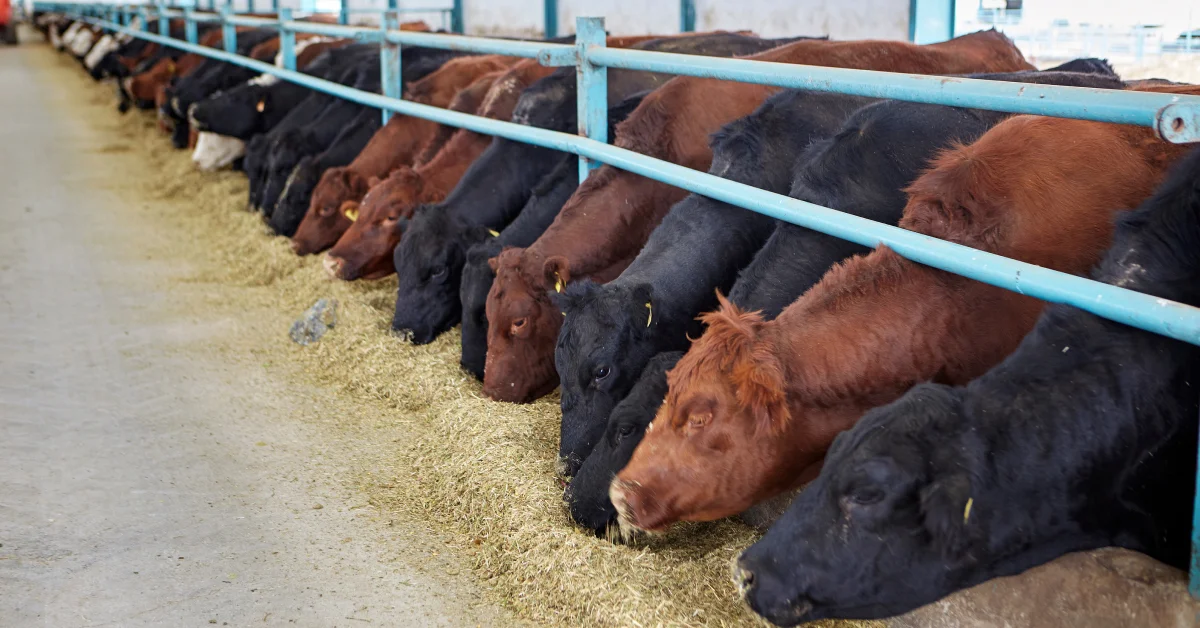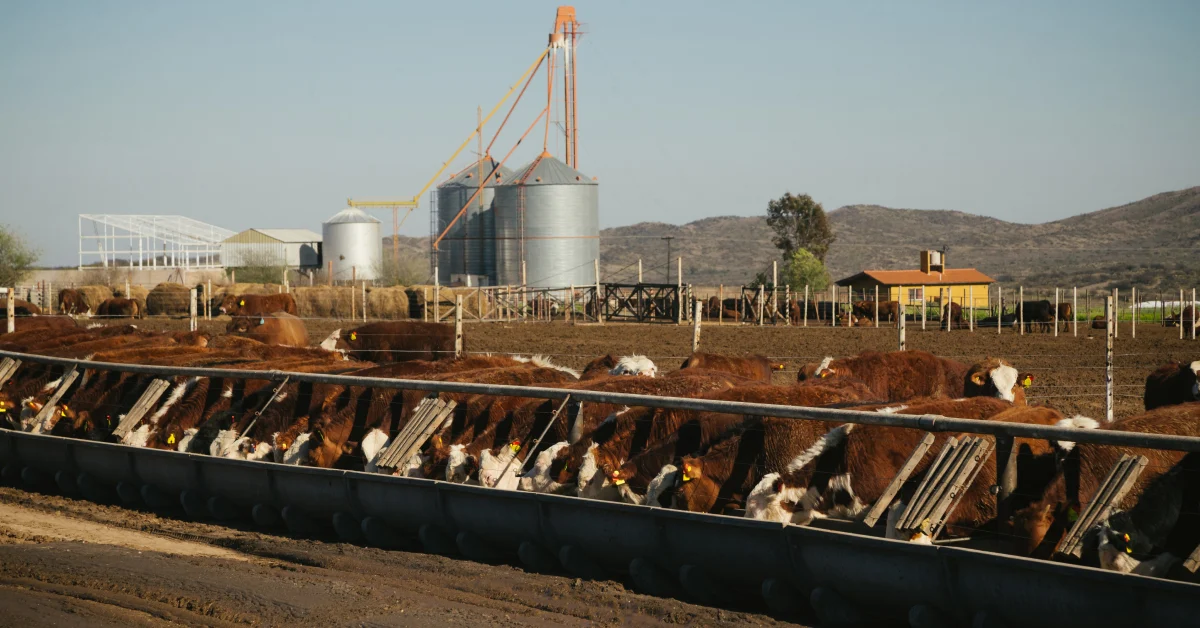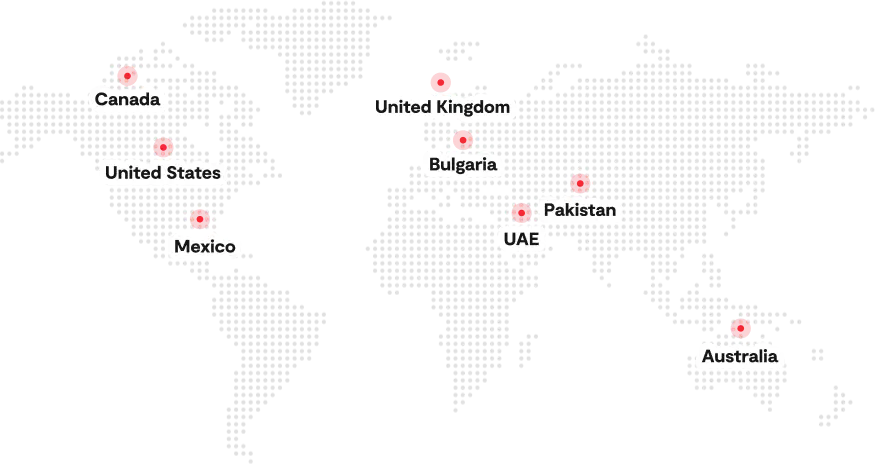Artificial intelligence (AI) and machine learning are bringing precision farming and farm management into a new age of agriculture and reshaping its future.
With the growing demand for food to feed an increasing number of people, farmers rely on AI and machine learning technologies to improve their productivity.
Today, agriculture ERP systems have become the backbone of modern agribusinesses. They manage crop planning, resource allocation, inventory, and financial tracking.
With the agricultural sector gradually adopting digital technologies, AI and machine learning are vital constituents of farm ERP systems that must be integrated for efficiency, sustainability, and profitability in farming operations.
In this blog post, we will discuss the real significance of AI and machine learning in operation management and how agriculture ERP systems are revolutionizing. Furthermore, we will discuss how firms like Folio3 Agtech are currently excelling in utilizing AI and IoT to define the future of farming.
Exploring the Dynamics of Agriculture ERP Systems
The use of ERP solutions gained momentum in farm management, and these solutions offered farmers a wholehearted method of managing every farm aspect.
Agriculture ERP systems are developed for a wide range of agricultural operations, so there is an opportunity to integrate different production facets and thus maximize productivity. The system encompasses functions from finance to production tracking all in one platform.
It is integrated into multiple farm management features and is headquartered in one location, enabling farmers and agribusinesses to organize and control their operations using tools meant for financial efficiency.
Agriculture ERP systems typically include crop and stock management modules, inventory tracking, finances, supply chain coordination, workers’ management, regulatory compliance, and reporting.
Agriculture ERP systems facilitate higher efficiency, productivity, and decision-making through data centralization and automation, generally improving farm performance. For professionals seeking to better understand and manage these complex systems, enrolling in an operations management course can provide the foundational skills needed to drive efficiency and strategic oversight in modern agricultural enterprises.
Benefits of Agriculture ERP Systems
Streamlining Operations
Agriculture ERP systems with farm management modules centralize farm operations and automate routine functions, ensuring enhanced efficiency and productivity.
Data Integration
The agriculture ERP systems in farming are integrated into one platform to handle different types of data, e.g., data from sensors, IoT devices, and farm equipment. This leads to access to real-time insights and decisions based on even data.
Decision-Making Support
Armed with up-to-date data from access to in-depth information and analytics, farmers can review their choices regarding resource allocation, plant cultivation, and strategic management, taking the business of farming to another level.
Improved Efficiency
Such agriculture ERP systems automate the work, decrease the number of person-hours, and boost resources to optimize the farming process. This results in greater effectiveness in adapting the diverse components, such as cropping and harvesting, to the storage management and distribution systems.
Enhanced Decision-Making
Agriculture ERP systems offer agricultural producers access to actual-time data and insights that facilitate the farmers’ gaining knowledge that would be used to inform decision-making based on the data received.
By assessing critical performance indicators (KPIs), farmers can identify the challenges that affect outputs, such as crop yields, resource usage, and market trends. This assists in shaping strategies that aim to ensure high outputs and support productivity improvement. Achieving this level of sophisticated system integration and strategic implementation requires high-level technical skill. Companies can access this expertise with affordable software engineering solutions to deliver on their advanced digital transformation goals.
Increased Productivity
Farmers benefit from agriculture ERP systems in different ways, including better resource planning, tracking, and management.
They can realize more production at the same time. In short, high-yielding crop management is achieved by effectively managing a farm’s work cycle, eliminating downtime, and increasing the farm’s efficiency per acre. In this manner, yields would be more significant, and farm productivity would be boosted.
Cost Reduction
Thanks to the development of agricultural systems, farmers have the potential to save on operational costs by improving workflow, minimizing waste, and optimizing resource utilization.
Farmers must improve their approaches to inventory management, labor scheduling, and equipment maintenance to decrease costs and raise revenue.
Machine Learning in Agriculture
AI technology in farming has started a new wave of the technical revolution, enabling farmers to apply more sophisticated tools to increase crop accuracy and overall farm productivity.
Here’s an overview of how machine learning is transforming agriculture:
Weed and Pest Detection
Machine learning algorithms can analyze pictures of the field’s media taken by drones in farms or detect pests and weeds.
By taking advantage of the large size of the cropping images dataset, ML can accurately recognize both the weedy plant and insect pests and error single use of herbicide and insecticides. This minimizes the environmental impact and reduces costs.
Plant Disease Detection
Conscious ML algorithms detect plant diseases by examining leaves and pictures of other plants. As it is known, this works through the detection of machine learning. Algorithms can analyze plants’ stems, leaves, and features to identify potential diseases.
Farmers can detect infections early by taking timely actions to control their spread. Timely diagnosis is critical to avoiding crop losses and perfecting therapy management.
Stress Detection in Plants
ML algorithms can identify different environmental factors like temperature, humidity, water conservation, and soil issues to determine the level of stress plants face.
ML Models can also locate the relationships between soil characteristics and plant health and predict and identify the signs of stress in crops.
Doing so equips the farmers with the right tools to implement exemplary interventions properly, such as adjusting irrigation schedules or applying nutrients to ease and increase plant resilience.
Smart Farms or Automation in Farms
Machine learning offers the capability to mechanize some farm operations and is thus a prominent part of smart farms.
With ML algorithms, water irrigation scheduling can be optimized, precision farming equipment operation can be controlled, cows and other livestock can be managed, and the field’s environment (i.e., humidity, temperature, etc.) can be constantly monitored in real-time.
Machine learning autonomy can improve operation efficiency, lower human labor expenses, and perform tasks optimally to achieve high farm productivity.
Crop Yield Estimation and Prediction
Machine understanding will enable the determination of crop yields from previous data, weather forecasts, soil conditions, and other related factors.
By analyzing enormous amounts of data and discovering any tendencies, ML algorithms can predict crop yields with high precision. This, in turn, informs farmers about proper planning, planting, harvesting, and marketing strategies.
Yield forecasting reliably ideally supports improved resource allocation and financial management, which ultimately translates into higher profit.
Current Trends in AI and Machine Learning for Agriculture
Current trends in artificial intelligence and machine learning directed at today’s agriculture are already remaking it by introducing novel approaches to old problems and improving farming activity optimization.
Here’s an overview of how AI and machine learning are currently being utilized in agriculture:
Crop Monitoring
Ait-guided systems assess hyperspectral cameras, aerial photography, and IoT sensors, among other things. They identify anomalies and assist in timely agronomic decisions.
By spotting consistent patterns in the acquired data, these systems offer farmers practical conclusions about crop health, and a. Actions are being taken in time to improve crop yields and reduce the loss.
Active Analytics
AI algorithms utilize data about rain, soil fertility, pest presence, and yields to predict future weather occurrences and tendencies.
Predictive analytics allows farmers to foresee probable risks, such as droughts or sudden disease breakouts, and generate preventive strategies to cope with them.
In the same way, forecast models are used to improve yields, the timing of planting crops, the choice of irrigation systems, and other methods to increase production and boost agro-businesses’ incomes.
Supply Chain Optimization
AI-based agricultural supply chain management solutions will streamline the distribution of agricultural products from the farm to the trading point.
By assessing inventory management, transportation logistics, and market trends, artificial intelligence can devise the optimum transportation, distribution, and inventory management mix with negligible costs and maximum returns.
These technologies allow farmers to send fresh products to consumers more quickly, provide an avenue for manufacturers to reach more consumers, and gain agility in the delivery of products to the market, thereby meeting consumer needs faster.
Examples of AI applications in agriculture include:
Crop Yield Prediction
The machine learning model analyzes historical data to accurately predict crop yields, weather conditions, and soil characteristics based on field conditions.
Such predictions allow for better decision-making on planting times, better resource management, and cost savings. Moreover, they mean higher yields in quantity and quality of the harvest.
Pest and Disease Detection
AI-led imaging technologies distinguish manifestations of pest infestation and crop diseases by looking through images of plants taken by drone captures or smartphones.
Early detection allows farmers to be punctual and responsive, reducing crop losses and chemical pesticide application to a minimum.
Precision Agriculture
The utilization of AI-based precision farming methods unmistakably demonstrates efficiency because, based on site-specific data and crop demands, only those inputs, such as water, fertilizers, and pesticides, that are precisely needed are consumed.
Using sensors, drones, and Internet of Things (IoT) devices enables farmers to check soil attributes such as moisture content, nutrients, and health parameters in real-time, which provides a basis for managing resources and crops well.
Integration of AI and Machine Learning in Agriculture ERP
The recent development of AI and machine learning technologies in agriculture ERP systems implies that the management of modern agriculture will enter a new era.
Here’s how these technologies are integrated into Agriculture ERP systems and the advantages they offer for agribusinesses:
Data Collection and Integration
AI and machine learning-powered tools in Agriculture ERP systems can gather, integrate, and analyze farm data from multiple sources, including weather stations, sensors, and vehicles.
The inputs could include various sources, such as IoT sensors, satellite imagery, daily weather forecasts, soil samples, crop health monitors, and historical farming records.
A cortex of multiple disconnected data flows, the AI-powered ERP will form a one-stop data hub to generate deep insights for farm management.
Data Analysis and Prediction
AI and machine learning techniques employ many farm data analysis techniques to find connections, correlations, and tendencies that would otherwise go unseen by human eyes.
These algorithms (which use complicated analytical techniques, predictive models, and anomaly detection algorithms) can provide insights into crop production, pest infestation, disease outbreaks, weather patterns, market trends, and resource utilization. Just as AI developers use prompt versioning
to refine large language model outputs, agribusinesses can refine their ERP-driven predictions through continuous model optimization and testing.
With the help of historical recurrency and real-time supervision, AI-driven ERP solutions enable agroenterprises to make well-grounded decisions and adequately forecast the issues of planting timing, yield prediction, resource allocation, and market demand. For professionals looking to build expertise in these advanced analytics and modeling techniques, enrolling in AI Certification Courses can provide the essential knowledge and practical skills needed to apply AI effectively in agriculture and beyond.
Resource Optimization
AI-driven ERP solutions optimize resource utilization by dynamically allocating inputs like water, fertilizers, pesticides, labor, and machinery based on real-time data and predictive models.
The solutions confront the problem using optimization algorithms and decision support systems to refine production and lower input costs for maximum crop yields and operational efficiency.
Modifying irrigation quantities, fertilizer applications, and pest control schemes based on various inputs and outputs resulting from weather conditions and changing crop cultivation needs.
AI-powered agriculture ERP systems support the agribusiness industry in achieving sustainability-oriented and economically beneficial farming practices.
Impact on Farm Management
The ability of AI and machine learning technologies to impact farm management through higher productivity, lower costs, and better decision-making is unique, positively influencing this area. Here are some case studies and examples that illustrate this impact: Here are some case studies and examples that illustrate this impact:
Increased Efficiency
Precision Agriculture
AI and machine learning algorithms empower precision agriculture by processing data from sensors, drones, and satellites. Farmers carefully attend to these data and obtain exact insights about the condition of the crop, soil, and weather patterns.
Livestock Monitoring
Artificial intelligence (AI)- controlled apparatus such as Cowlar employs wearable devices and machine learning software to facilitate the instantaneous and daily monitoring of health and livestock behavior.
Through the collection and analysis of data relating to movement, temperature, and feeding behaviors.
Adequate time intervals allow the farmers to notice signs of sickness or distress, take the necessary preventive measures on time, and ensure the welfare of the animals.
Cost Savings
Optimized Inputs
AI-based agriculture ERP systems precisely manage the usage of inputs that are pre-processed through the estimation of data on soil fertility, moisture levels, and pest infestation. The objective is to tailor the application of fertilizers and pesticides specifically to crop needs.
Applying this practice, it is possible to substantially decrease the employment of inputs and reduce waste, which, in turn, can leave the farmers with considerable cash savings without the decrease in crop yields.
Labor Optimization
AI-assisted agriculture machinery operation and management systems help with time-consuming tasks like watering, crop disease diagnoses, and equipment maintenance. This subsequently leads to fewer laborers and related labor costs.
Better Decision-Making
Data-Driven Insights
AI-based ERP affects the efficient management of the farm’s data, which was never possible for farmers. Now, these AI-based systems are giving actionable insights and recommendations without involving humans.
Risk Management
AI and machine learning algorithms can detect and reduce risks like crop diseases, pest infestations, and adverse weather events by determining the historic diet and forecasting current conditions.
Through timely identification and handling of risks, including protection from crops and nature, losses can be diminished/minimized.
Challenges and Considerations
Implementing the AI and machine learning components in agribusiness enterprise resource planning systems (ERP) requires considering and addressing several challenges that the businesses need to overcome to achieve a smooth implementation and desirable results.
Here are some of the key challenges and considerations: Here are some of the key challenges and considerations:
Challenges
Data Quality and Quantity
Data, the driving behind parameters of AI and machine learning algorithms, are essential to agriculture’s agriculture ERP systems for sensible insights to be generated.
Although it is important to obtain high-quality and quantity data from sensors, satellites, and manually recorded sources, it can sometimes be difficult enough.
Agribusinesses should endeavor to combat concerns about data reliability, consistency, and correctness to improve the performance of AI models.
Data Privacy and Security
Agricultural data entailing farms’ operations, outputs, financial transactions, and forecasts are sensitive and valuable.
Guaranteeing the security of the data that can be stolen or corrupted through hacking or cyberattacks should be the top priority.
Agricultural enterprises must develop strong data privacy and security rules, such as cybersecurity with encryption, access controls, and regulations such as GDPR and CCPA, to ensure the safe flow of farm data from generation to end.
Interoperability and Integration
Merging AI and machine learning potentials with present-day agriculture ERP systems software implies that the general communication between existing technologies, applications, and IoT devices should be litter-free.
Little may trouble agribusinesses more than linking up heterogeneous systems, making data compatible, and keeping it accurate at each platform individually.
The data from the materials in the same format can be the trigger for simplifying interfaces and protocols at various integration stages.
Skill and Knowledge Gap
Utilizing AI and ML for agribusiness success undoubtedly requires knowledge, skill, and expertise in data science, statistical analysis, and agricultural practices.
Agribusinesses will probably face difficulties hiring and keeping qualified IT specialists and data scientists who can master AI and machine-learning technologies.
Implementing training and upskilling the existing workforce or partnering with external experts will help fill the skill gap.
Considerations
Scalability
The scaling factor of AI and machine learning problem attention should be considered for agribusinesses when accommodating future growing and amassing data volumes.
Agriculture ERP systems may manage more extensive databases, complex analytics, and increased functionality without affecting performance or interface as the system size swells.
Agribusinesses should ensure that AI-driven ERP solutions are scalable and select avenues that may respond to emerging business needs.
Cost-Benefit Analysis
The initial costs of AI and machine learning integration into farm ERP systems are challenging and involve hardware, software, and human resources expenses.
Agribusiness should do a deep analysis to check whether the AI-supported ERP solution for investments can add value and profitability in the long run.
Technology investments in agribusinesses can assess efficiency factors such as productivity increases, cost reductions, and generators of competitive features.
Regulatory Compliance
To be successful in markets abiding by the laws, producers working in regulated industries are required to make sure that their systems comply with market and official standards (e.g., industry regulations, government rules, and data privacy laws)
While implementing AI or machine learning technologies in agriculture ERP systems, Farmers should consider the regulatory framework, comprehend the legal requirements, and institute regulations and processes to control the ligament and legal risks associated with data handling and algorithms.
Change Management
With the employment of AI and machine learning in agriculture ERP systems, many organizational processes and activities must be rethought and reengineered to be bright and updated.
Agribusinesses are expected to adapt and create an innovative culture that encourages companies to work together and continue learning to align with and support such technology adoption paths.
Integrating AI-supported ERP applications can be seamless if training sessions, communication avenues, and support are offered to all staff at all levels.
Future Prospects
The future of AI and machine learning in agriculture ERP holds immense potential for transforming farm management practices and driving sustainable agricultural development. Here’s a glimpse into what the future might hold:
1. Advancements in Automation
AI and machine learning technologies will continue to advance, leading to greater automation of farm management processes.
This includes planting, irrigation, pest control, and harvesting, where intelligent systems can autonomously analyze data and make real-time decisions to optimize agricultural operations.
2. Predictive Capabilities
AI-driven ERP systems will evolve to offer more robust predictive capabilities, enabling agribusinesses to anticipate and mitigate risks, optimize resource allocation, and maximize productivity.
Predictive analytics algorithms will leverage historical data, environmental factors, and machine learning models to accurately forecast crop yields, market demand, and supply chain disruptions.
3. Enhanced Sustainability
AI and machine learning will be crucial in enhancing agriculture’s sustainability by promoting resource-efficient practices, minimizing environmental impact, and fostering resilience to climate change.
Intelligent ERP systems will enable precision farming techniques, such as variable rate application of inputs, precision irrigation, and targeted pest management, to optimize resource use and minimize waste.
4. Resilience to Environmental Changes
As climate change continues to impact global agriculture, AI-driven ERP systems will help agribusinesses adapt to changing environmental conditions and mitigate associated risks.
Machine learning algorithms can analyze climate data, soil health indicators, and crop performance metrics to identify resilient crop varieties, optimize planting schedules, and implement adaptive management strategies in response to climate variability.
Potential Benefits for Agribusinesses
- Increased Productivity: AI-driven ERP systems will streamline farm management processes, reduce manual labor, and optimize resource allocation, increasing productivity and operational efficiency.
- Cost Savings: AI-driven ERP systems can help agribusinesses reduce production costs, improve profit margins, and achieve greater financial sustainability by automating repetitive tasks, optimizing resource use, and minimizing waste.
- Better Decision-Making: Advanced analytics and predictive capabilities offered by AI-driven ERP systems will empower agribusinesses to make data-driven decisions, anticipate market trends, and respond proactively to changing conditions, resulting in improved business outcomes and competitive advantage.
- Enhanced Sustainability: By promoting precision farming techniques, minimizing environmental impact, and fostering resilience to climate change, AI-driven ERP systems will contribute to the long-term sustainability of agriculture, ensuring the viability of farming operations for future generations.
Folio3 AgTech stands at the forefront of this transformative journey, offering cutting-edge ERP solutions tailored to the unique needs of the agriculture industry.
With over 20 years of proven expertise in agricultural software development and a track record of successful implementations worldwide, Folio3 AgTech is committed to empowering agribusinesses with innovative technology solutions that drive growth, maximize yields, and ensure long-term success.
You can partner with Folio3 AgTech today to unlock the full potential of AI and machine learning in agriculture ERP and secure a sustainable future for your farm.
Conclusion
The future of agriculture ERP systems is poised for a revolution by integrating AI and machine learning technologies.
These advancements promise increased automation, predictive capabilities, and enhanced sustainability, offering agribusiness opportunities for greater productivity, cost savings, and better decision-making.
Luckily, partnering with leaders like Folio3 AgTech ensures access to cutting-edge solutions that drive growth and ensure long-term success in the ever-evolving agricultural landscape.
FAQs
What are the Future Possibilities of AI in Agriculture?
The future possibilities of AI in agriculture are vast. AI can revolutionize farming practices by enabling precision agriculture, optimizing resource use, predicting crop yields and market demand, automating tasks like planting and irrigation, and promoting sustainability through data-driven decision-making.
What is the Future Scope of Machine Learning in Agriculture?
The future scope of machine learning in agriculture is extensive. Machine learning can help farmers improve crop accuracy, detect pests and diseases early, optimize resource allocation, automate farm operations, predict crop yields, and adapt to changing environmental conditions.
How is AI and Machine Learning Used in Agriculture?
AI and machine learning are used in agriculture in various ways, including crop monitoring, pest, and disease detection, stress detection in plants, automation of farm operations, crop yield estimation and prediction, supply chain optimization, and data analysis for informed decision-making.
What is the Agriculture Technology of the Future?
It will focus on enhancing productivity, sustainability, and resilience to environmental challenges. It will involve intelligent farming practices, task automation, data-driven decision-making, and optimization of resource use for efficient and profitable farming operations.





